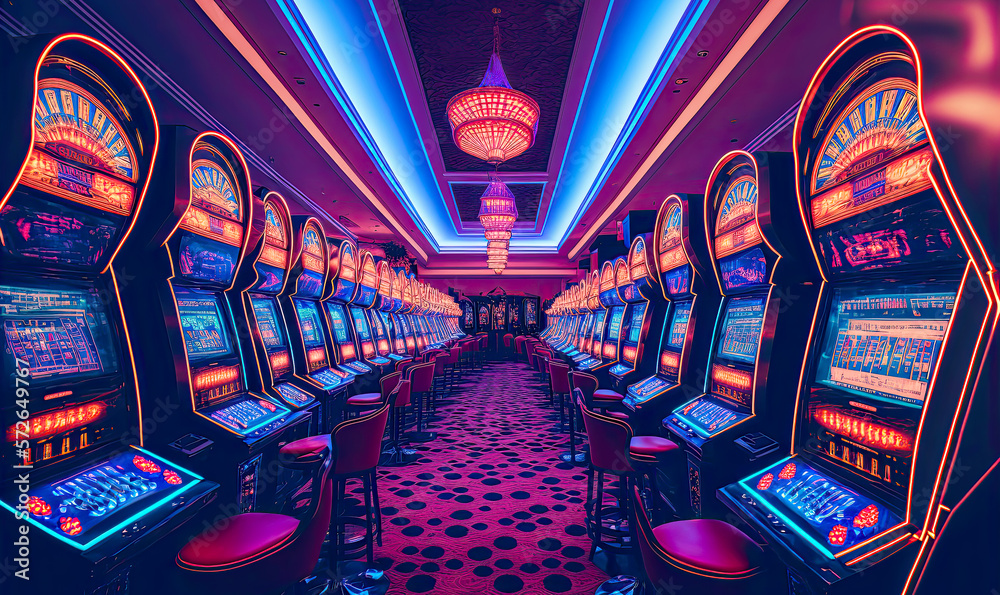
Casino entertainment have long been a significant aspect of human culture, providing not just entertainment but a fascinating reflection of our aspirations, dreams, and anxieties. From the rotating wheels of a slot machine to the tactical play of poker, these games embody a variety of human feelings and experiences. At their core, casino games are not just a chance to make profits; they are a snapshot of life itself, where danger and gain merge and fortunes can change in an eye blink.
As players assemble around tables or sit in front of brightly lit machines, they participate in a ceremony that transcends mere playing. These games echo our instinctive desires for social interaction, adventure, and the quest for chance. They also reveal deeper truths about human nature, such as our relationship with chance and the adrenaline of the unknown. In exploring casino games, we reveal not only the nuances of play but also the rich tapestry of the human journey, showcasing our intertwining narratives of aspiration and reality.
The Mind Behind Gambling
Gambling is intrinsically connected in the psyche of individuals, appealing to various feelings and wants. The excitement of risk-taking is a core aspect that attracts participants, whether the excitement of spinning a roulette or the excitement of drawing a winning hand in a poker game. This rush of adrenaline is often compared to other forms of excitement, as the uncertainty of outcomes elicits a unique psychological response. Players often find themselves entranced by the possibility of striking it rich, leading to an almost magnetic draw toward casino games.
Additionally, an essential component of the psychology behind gambling is the concept of hope and aspiration. Players often indulge in dreams of financial freedom and the opulent lifestyle that can follow winning. This hope fuels their ongoing participation in casino games, as it provides a sense of purpose and the conviction that a transformative win could be just one bet away. The narrative of overcoming odds and finding success resonates with many, strengthening their commitment to play and involve themselves with these games.
Finally, social dynamics play a crucial role in gambling psychology. Casino environments are designed to foster social interaction, where gamblers gather to share the journey of wins and losses. This communal aspect not only amplifies enjoyment but also influences behavior, as individuals often imitate the actions of others around them. The social validation found in shared excitement can magnify the emotional experience, making casino games a mirror of not just personal desires but also collective engagement within the gaming community.
## The Dual Nature of Risk and Reward
Gambling activities embody the delicate balance between risk and gain that resonates profoundly with human psychology. The excitement of placing a wager is often accompanied by a surge of excitement, as gamblers are confronted with the possibility of winning big, yet conscious of the possibility to lose. This dual experience reflects a core aspect of life: the decisions we face often come with inherent risks, and the quest for benefit can drive us to take chances we might not normally consider. In this way, gambling activities echo real-world choices, enticing gamblers to gamble not just their funds, but also their hopes.
The allure of big prizes and payouts fuels a wave of hope, encouraging gamblers to imagine a better future that could arise from a fortunate turn of the wheel or flip of a card. This optimism can drive individuals to engage in more daring actions, urging them to extend their limits in search of financial gain. However, just as in life, the consequences of these risks can lead to both victory and loss. The narratives of both jackpot winners and those who have lost everything at the casino demonstrate the random nature of luck and its significant repercussions on our futures.
Ultimately, the experience of engaging with casino games serves as a strong reminder of the human condition. Every game played is loaded with the tension of risk, as gamblers weigh the rewards against the dangers. This dynamic not only highlights the thrill that comes with gambling but also reveals the risks that come with the urge for more. As we journey through the complexities of decision-making and consequence in both the casino and in life, we find that the pursuit of risk and reward shapes our sense of self and experiences in significant manners.
Culture and Isolation in Gambling Environment
Gambling culture is a distinct mix of communal engagement and individual pursuit, reflecting the dualities of human experience. Players often gather around tables, experiencing in the thrill of the action, celebrating wins, and sympathizing over losses. kèo nhà cái 5 This social aspect is essential, as it creates a sense of community and bonding among varied groups of individuals. Regular attendees to casinos may form friendships and develop routines, turning the gambling venue into a alternative home where they experience connected to a larger community of gamblers.
However, the allure of gambling activities can also lead to isolation. As individuals become immersed in the thrill of gambling, they may withdraw from personal connections or fail to engage with the environment outside the casino. For some, the search of a jackpot can overshadow genuine connections, leading to isolation. The experience of being among others yet experiencing solitary is not uncommon, as the focus shifts from shared enjoyment to the individual concerns of each individual’s path.
This interplay of society and isolation creates a rich tapestry that defines casino culture. It showcases the intricacy of human interactions, where joy and despair exist together. Casinos serve as both a sanctuary for social interaction and a stage for individual challenges, illustrating how deeply connected our desire for companionship and the personal quest for wealth can be. In navigating this landscape, gamblers confront their own narratives—seeking both the thrill of the game and the companionship of fellow gamblers, eventually mirroring the wider spectrum of individual experience.
